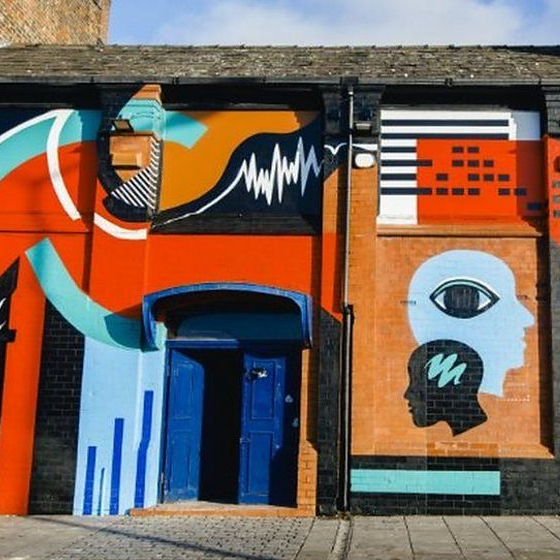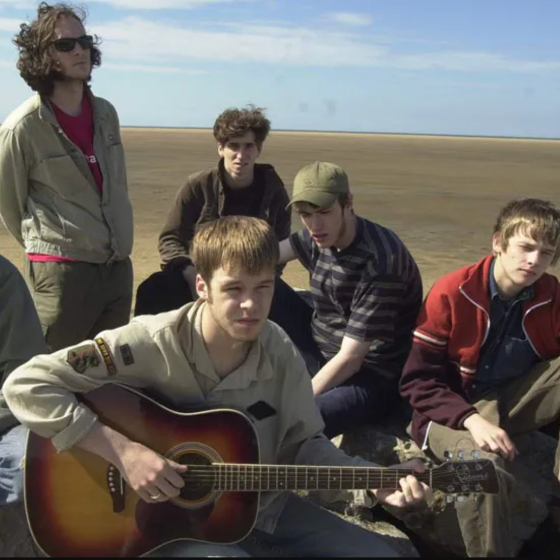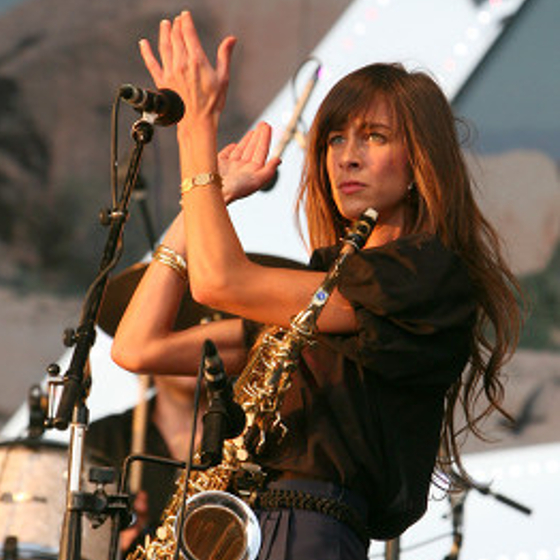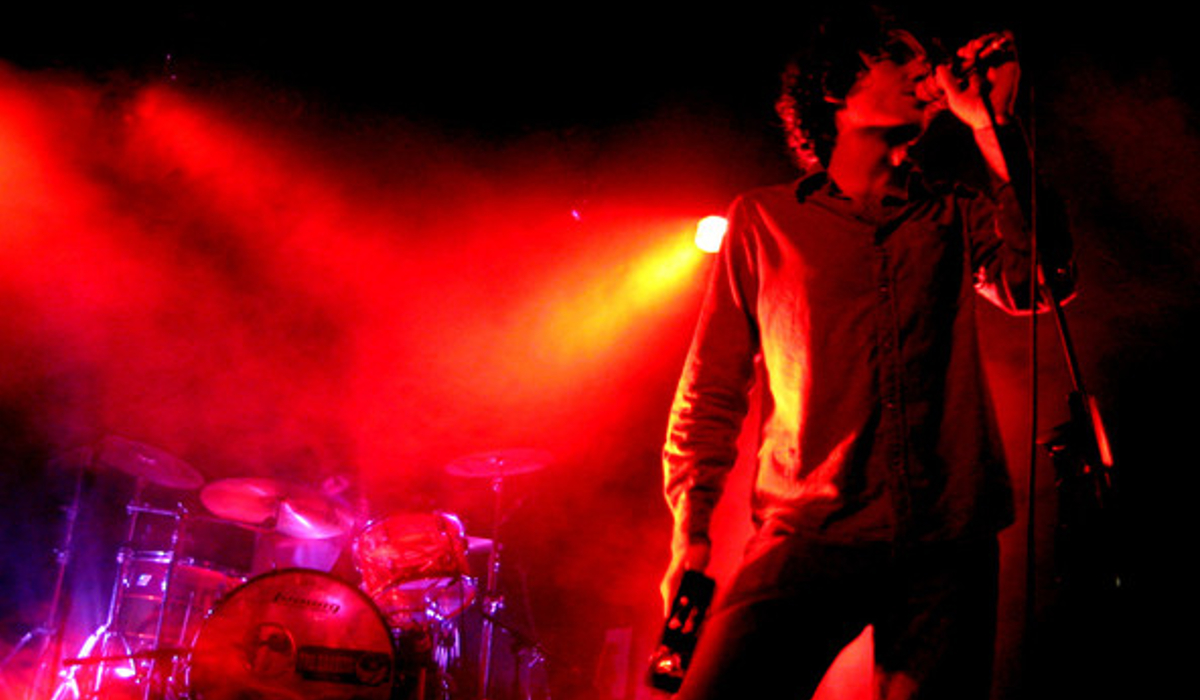BANDWAGON
People often talk about music ‘scenes’ but this can mean very different things. Normally a ‘scene’ is born from a bunch of bands, often from the same area, playing the same style of music, but it stands out because it’s different from what’s happening elsewhere. Sometimes a scene happens because a venue emerges that is open to new ideas, bringing together inspiring individuals searching for somewhere to help them realise their vision. Occasionally, a scene can be driven by a single charismatic person who has that special quality to bring others with them. Often, it’s simply that musicians want to create a night that they and their mates want to go to, but it doesn’t exist. So why not do it themselves?
When I was a music-obsessed 15 year old, I was part of a movement centered around a club called Eric’s. A dingy basement that introduced me to a cast of fascinating characters, both on and offstage, as well as amazing music. Eric’s changed my life and shaped most of what I’ve done since – that’s why scenes are so important.
A unique collection of musical talents that emerged from this particular scene was The Bandwagon, a monthly night that took place at The Zanzibar in the early 2000s. With a legacy of several years, the event was started by The Bandits as a space for them and their mates’ bands to play. The Bandwagon could’ve only really worked at the Zanzibar; with hindsight it was a perfect match – a club owner who ‘got it’ and knew when to stand aside to let the band get on with it. The nights were very DIY, with the band booking all the artists, Bandwagon DJs soundtracking the night, and Scott from the band designing the posters. They’d drive around town in an old Ford with buckets of paste, sticking the posters up wherever they could.

What made these nights so special? At the heart of it was great bands, great mates and a growing feeling of something exciting about to happen. The Bandits themselves quickly went from being interesting (if a bit ramshackle), to being a powerful live band with a strong set of songs. Also gracing the line-ups was The Coral, who even at this joyfully naive stage of their career were probably my favourite band. The Zutons were beginning to emerge then too, but it was only when Abi joined on sax and vocals that their huge potential became obvious. I also remember seeing Howie Payne’s first gig with his new band The Stands, alongside a debut from Blue Ruby. What better place to start off than playing in a small club with a supportive audience, made up of loads of people you knew? The Stands themselves went on to sign a major deal and released two albums (the first of which still merits a listen).
The Bandits had a knack for booking bands in the early stages of their career, another being The Libertines. I was lucky enough to see them at Bandwagon a few weeks before ‘What a Waster’ was released. At the time they were on fire, but the venue wasn’t even full! Then, of course, there was the famous night where Noel Gallagher got up to do a few songs (including the first ever performance of ‘Stop The Clocks’). Apparently Gary Bandit made the booking and paid him £50 cash in hand.
Like all the best scenes, it was built around a tight knit group of people. Most of them even had rehearsal rooms in Elevator on Dale Street, so were always around each other. A perfect example of this was when Sean Payne (Zuton’s drummer) seamlessly filled in for The Coral because Ian Skelly was unable to play, a Bandwagon night that ended with an uproarious encore of ‘Maggie’s Farm’. They even got The Bandits and Bandwagon regulars up on stage with them! The Bandwagon first birthday party was pretty memorable too; they were so loud that they blew a speaker in the club’s PA system. Their manager Rob seemed to be the only person who noticed, as everyone else was having too good a time.

And having a good time is my other big memory from that scene. The sweaty cauldron that was The Zanzi was the perfect venue for emerging bands, with little separation between artists and fans, making the audience an important part of every performance (obviously the toilets could have done with an upgrade, but you could probably say that about every great club in history).
The Bandwagon had a major impact over the next few years. Not just by helping launch the careers of The Coral and The Zutons etc., but also by drawing the attention of the music media and mainstream press back to Liverpool. The NME was pretty much based out of Liverpool for a year or so, whilst The Guardian did a big feature on all the bands and the scene that spawned them. They ended up using the catch-all collective noun ‘Cosmic Scousers’, which I think was a pretty fair description.

The Bandwagon scene culminated in June 2003, with a mini festival in New Brighton headlined by The Coral. Support came from The Zutons, The Libertines (minus Pete Doherty) and The Bees (still dull). Speaking to Gary Bandit recently, we agreed that the Bandwagon couldn’t have happened without the support and involvement of talented mates from each band. Many of the main players from the scene are still active, however two key individuals are sadly no longer with us – Tony Butler and Alan Wills. There’s a plaque outside the Zanzibar honouring the huge role Tony played in the lives of so many musicians, whilst the guidance and genius Alan gave The Coral and The Zutons will live on through their music.
Gary Bandit himself is now a well-respected tour manager, having done global runs with Inhaler. However, The Bandits’ career sadly never hit the heights of their mates and they split up in 2004. They had a good run with their only album ‘And They Walked Away’ and touring with the legendary Joe Strummer, but for me, the band will be mostly remembered by their live presence. A record could never quite capture the real spirit of the band and their raucous Bandwagon nights.
Written by Kevin McManus




